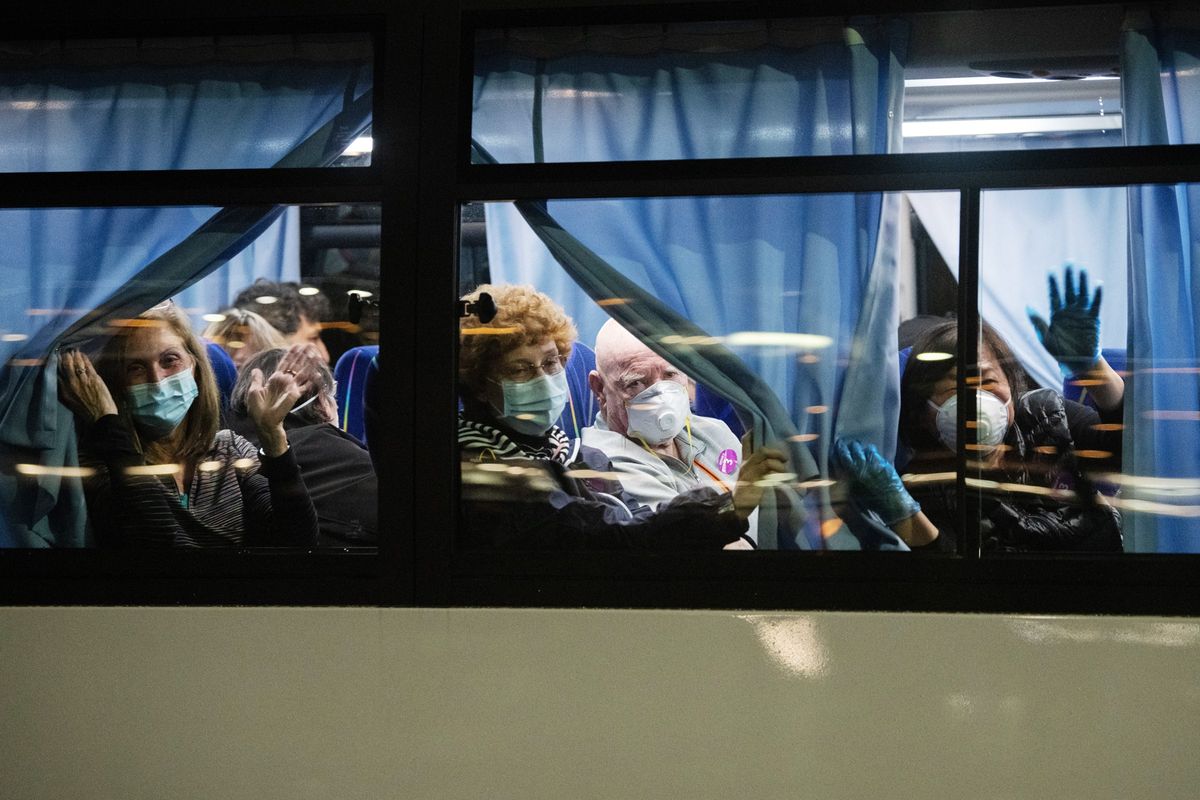The search for meaning in times of crisis

A few minutes every morning is all you need.
Stay up to date on the world's Headlines and Human Stories. It's fun, it's factual, it's fluff-free.
Throughout history, great thinkers have pondered the notion of meaning and purpose in the lives of human beings and the world around us. From Aristotle in antiquity to Kant during the Enlightenment, ideas around human purpose have been a recurring topic.
During times of crisis, a focus on higher meaning may become even more relevant, as people look for ways to make sense of the dramatic things taking place in the world. COVID-19, which has infected just under 3 million people worldwide and led to the deaths of over 200,000, is one of those moments.
With widespread lockdowns, quarantines and general disruptions in the lives of people all over the world – along with a 24-hour news cycle that puts near constant attention on the virus – many are left wondering not only when things might return to normal, but what they can hold onto to find some meaning in it all.
“Nature doesn’t care about you”
According to Stephen Asma, a professor of philosophy at Columbia College Chicago, as a living virus and product of nature, COVID-19 isn’t inherently good or bad. As for a higher purpose, in the context of human society its meaning is only dependent on what we collectively decide to give it.
“Nature doesn’t care about you,” he wrote in a recent New York Times opinion piece. “That may seem harsh, but strictly speaking, nature doesn’t care about anyone or anything, except passing genes into the next generation.”
Asma went on to note that the argument isn’t meant to be insensitive, only to highlight the realities of biology. Although this doesn’t diminish the real suffering caused by the virus, he argues, the coronavirus crisis is a prime example of the tendency of human beings to hold a “mythopoetic” view of nature – or a perspective that sees the workings of the natural world as a dramatic story filled with clear intentions.
While the coronavirus, along with other diseases, including their causes and effects, are simply the natural order of things, that doesn’t mean we should ignore the use of our imaginations to craft a story of human redemption.
“Imagining our lives as a dramatic struggle with occasional enemies (microscopic and macroscopic) can help us change hearts and minds, embolden convictions, inspire sacrifice, and thereby change the actual outcome of epidemics and other trials and tribulations,” Asma wrote.
What about religion?
Some, like Pope Francis, have alluded to the possibility that a higher meaning can be found in the coronavirus crisis, potentially as a result of the ways humans have degraded nature – or at least pushed it too far.
Earlier this month, Francis said that the outbreak could be one of “nature’s responses” to humans’ failure to combat climate change and the global ecological crisis. “I don’t know if these are the revenge of nature, but they are certainly nature’s responses,” he said.
Others have sought to utilize the strengths of organized religion to help bring people together to fight the virus and bring relief to communities that are suffering.
As the fight against the virus became global, UNICEF and Religions for Peace, an international coalition of religious leaders from around the world, launched an initiative to engage with people of faith across the world to provide guidance and care to affected communities.
“This pandemic gave us the opportunity to distance ourselves from the daily grind of our busy life and renewed the love and fellowship of our family in the confines of our home,” stated Dr. Lilian Sison, Secretary General of Religions for Peace Philippines.
“It is also a time for us to reflect in the silence of our hearts the deeper meaning of this challenge and what the Lord our creator truly wants from us which is calling us to Faith, hope and love,” she said.
A chance to adapt and change
Whether secular or religious, those searching for a positive meaning to this crisis generally seem to agree that the coronavirus should challenge human systems to find ways to emerge stronger.
In an article published in Harvard Business Review (HBR) shortly after the September 11th terrorist attacks in New York, a team of researchers argued that situations of tragedy can eventually lead to growth and renewal if people choose to focus on responses that can lead to positive change.
For most, that might start by looking at what can be done to assist or take care of those in their immediate surroundings, such as at home or work. Regardless of the type of group a person might be a part of, the important thing is that those involved start working towards creating “organizational compassion,” the authors note, which means groups should focus on cultivating genuine concern for the wellbeing of others – something that sometimes gets undervalued when times are good.
In the longer term, shifts toward compassion in times of trouble may help organizations and systems become more humane and responsive in the long run.
“Once in a great while, tragic circumstances present us with a challenge for which we simply cannot prepare,” says the authors in HBR.
“There is, however, something leaders can do in times of collective pain and confusion. By the very nature of your position, you can help individuals and companies begin to heal by taking actions that demonstrate your own compassion, thereby unleashing a compassionate response throughout the whole organization,” they conclude.
[article_ad]
Have a tip or story? Get in touch with our reporters here!
Sign up for daily news briefs from The Millennial Source here!




Comments ()